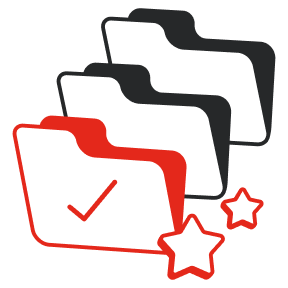It’s free
We’ll cover the Companies House company registration fees when you open a business current account with us
NEW COMPANY REGISTRATION
✅ Countingup is an official HMRC Company Formation Agent registered as a Trust and Company Service Provider
✅ Start by searching your new company name and apply in minutes
✅ Pay £12 to be refunded if you signup and use a Countingup business current account, terms apply.
Our company formation process is easy and it only takes a few minutes to register with your new company details, registered office address and shareholder information. Please note, you need to be a UK resident to apply.

Unique company name
Use our search tool to see if your company name is available and meets the Companies House requirements.
Registered office address
You need to have an address in the UK for all mail to be sent to, including government correspondence. This can be your home address, office address or a virtual office address.
Using a virtual registered office address means you can still get official correspondence from Companies House and HMRC whilst keeping your residential address private.
Business details
We’ll need some basic details about your new business.
Director and shareholder information
You’ll need to provide your full name, date of birth, nationality, address, occupation and proof of identity. Proof of ID can be a valid passport, driving license or European ID card. Please note, you need to be a UK resident to apply.

Yes, we’re an authorised agent of Companies House!
Registering a company online with Companies House costs £50 but we’ll register your company for free when you open Countingup business current account. You’ll need to pay a £12 deposit to register your company but we’ll refund this when you spend £50 on your card within 30 days.
We charge a £12 when you submit your company registration but this is a deposit towards the Companies House fee. We’ll refund this when you spend £50 on your card within 30 days of opening an account.
Doing business through a limited company provides you with limited liability protection. This means that your company is its own entity. If your company faces any issues, your personal assets are safe as you and your company are separate entities.
To register a new company with us, you’ll need:
The application process only takes a few minutes. Most applications are processed within hours, and the majority of customers receive their company registration documents by the next working day. Please note that Companies House does not operate on weekends or bank holidays, so applications submitted during that time may take longer to process.
To register a company with us, you must be:
If your company registration is approved, you’ll receive the below documents by email to the email you applied with.
If you need any assistance in the application process, you can reach out to us by emailing support@countingup.com.